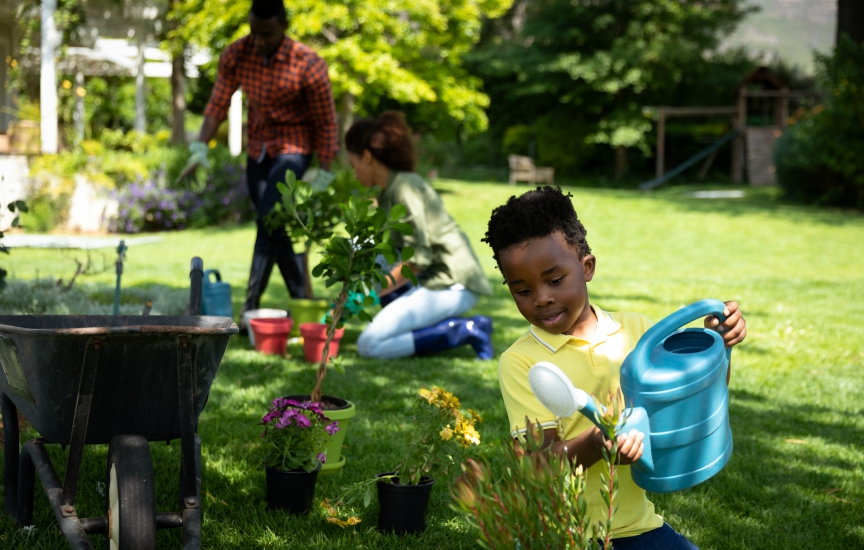Highlighting Australia
- As a proudly Australian initiative, we’re excited to showcase a collection of Australian stories, music, tributes and more.

Join activities, celebrations, study groups, spiritual empowerment and education programs for young people, and more.
Baha’i beliefs address essential spiritual themes for humanity’s collective and individual advancement. Learn more about these and more.


The Universal House of Justice, in its 26 November 1999 letter to the Baha’is of the world, defines the principal actors needed to build vibrant and open communities that will advance humanity towards realizing its oneness. These three protagonists are: the individual, the institutions, and the local community (and you can read an introduction to this concept here). Through their collaborations, advancement is possible in all our endeavors.
As a mother with love for the world and concern for the wellbeing of all children, I continually find the need to pause and reflect on what’s happening around us. It is hard to ignore the implications of raising children in this period of history. I wanted to explore this subject as it relates to the three protagonists and how they advance civilization.
As Baha’is we recognise that one of the most vital and fundamental teachings of Baha’u’llah is “the oneness and wholeness of the human race,”1 and that the establishment of this principle is the central purpose of the Baha’i Faith. Baha’u’llah states that we have all “been created to carry forward an ever-advancing civilization.”2 This makes me wonder and raises a number of questions: How do we as individuals align our thoughts and actions to this vision? Particularly when those without the consciousness of a common good and wellbeing for others becomes a source of great harm to those around them? We have all heard the saying “it takes a village [community] to raise a child”, yet how does a community assist in the raising of our children when some perpetuate age-old practices and cultural traditions, steeped in prejudice, hatred and exclusion, that breed violence? And how do institutions provide a foundation for justice when the current abuse of institutional power fosters political conflict and undermines confidence, while driving oppression and human suffering? How do we nurture our children to become citizens of a global community, while increasing their capacity for service? And how do we all become the protagonists needed to build this new world civilization?
Before sharing my personal reflections on each of these protagonists, I would like to share this concise and eloquent synopsis that offers us a description of the essential relationships that exist between them:
We are living today in a unique period in history. As humanity emerges from childhood and approaches its collective maturity, the need for a new understanding of the relationships between the individual, the community, and the institutions of society becomes ever more pressing.
The interdependence of these three protagonists in the advancement of civilization has to be recognized and old paradigms of conflict, in which, for example, institutions demand submission while individuals clamour for freedom, need to be replaced with more profound conceptions of the complementary roles to be played by each in building a better world. To accept that the individual, the community, and the institutions of society are the protagonists of civilization building, and to act accordingly, opens up great possibilities for human happiness and allows for the creation of environments in which the true powers of the human spirit can be released.3
I believe these powers are love, justice, and unified action.
Bahai.org so beautifully articulates our role as an individual by stating that, “every individual is a member of the human family and makes a contribution to the life of society.” Upon reflecting on being a protagonist as an individual and on my unique role and responsibility as a mother, my hope is that my children will endeavour to take initiatives, seize opportunities, form friendships and build relationships, just as we all strive to do. However, we are reminded that in order to pursue intellectual and spiritual growth while contributing to the transformation of our society, we must also consider instilling a strong sense of purpose expressed through service to humanity:
These are fundamentally inseparable dimensions of a single process, for the standards and behaviours of individuals shape their environment and, in turn, are moulded by social structures and processes.4
This reminds me of the importance of educating our children with a sound moral framework, where their thoughts and deeds are aligned to virtuous conduct and uprightness. In order to transform our society, we are reminded to devote our energies and abilities to the promotion and welfare of the entire human race. Abdu’l-Baha tells us:
Be ye sincerely kind, not in appearance only…Let him do some good to every person whose path he crosseth and be of some benefit to him. Let him improve the character of each and all and reorient the minds of men.5
Raising a new generation that see the world as a united whole would assist in removing veils of prejudice, fanaticism and superstition, while opening new avenues to an arena of service through collective action and progressive change. And with this collective transformation of individuals we turn to the essential role of the communities in which we all live.
Bahai.org’s section on community states that “human beings were not created to live alone but, rather, to belong to communities.”6 As we move from the constructs of competition to recognising the need for collaboration, the community becomes the setting in which our children are imbued in an atmosphere that fosters ever higher degrees of fellowship and unity, thereby promoting an environment where all are empowered to contribute their talents to the wellbeing of the whole.
Abdu’l-Baha states:
The supreme need of humanity is cooperation and reciprocity…The stronger the ties of fellowship and solidarity amongst men, the greater will be the power of constructiveness and accomplishment in all the planes of human activity.” He goes on to say, “In the same way that the human being is more than the sum of the individual cells which comprise its body, so too the powers of a unified community far exceed the combined powers of its individual members.7
When we, as parents, are able to nurture a sense of service within our children’s life experiences, we are endeavouring to teach them what it really means to see their community as their own family and the world as a unified whole.
A critical feature upon which children and family life are brought into existence, is the institution of marriage. Through marriage and family life, structure and stability are provided while playing a significant influence on the spiritual and material potentialities of the child. It is also within this institution that glimmerings and foundations of unity and justice are able to take shape and transform society.
Marriage and family life, like other Baha’i institutions, such as Local Spiritual Assemblies, Regional Councils or Training Institutes, strive to establish a new pattern of human affairs. As we are reminded that “the relationship between the individual and institutions is a reciprocal one,”8 we are able to reflect on the relationship between a child and the institution of family life. In order to live in harmony, we must value the importance of respect for one another within the family unit. Just as Baha’is are encouraged to carry out an institutions’ plans with enthusiasm, and institutions in turn guide and support, while nurturing the talents and abilities of the individual and community’s collective energies; so too there is a need, as parents, to acknowledge that while our children are expected to adhere to the framework set within their families lives, we must also strive to ensure that the rights of each are upheld, while nurturing their talents and abilities for the wellbeing of the whole.
I imagine a loving, safe and secure environment in which to raise our children, while providing a firm foundation for their journey through life, would be the desire of most parents. As each one of us holds considerable weight and responsibility for every child’s future, it is hard to deny that the world would not be a better place without Baha’u’llah’s teachings of love and unity, reflected in the harmonious interactions of the three protagonists in contributing to an ever-advancing civilization.
And so, I will leave you with a passage from the introduction to Baha’u’llah’s Epistle to the Son of the Wolf:
Religion has often, in the past, produced the good individual. The primary object of Baha’u’llah’s religion is to produce the good society. His administrative system offers, Baha’is believe, the only satisfactory arrangement between individual and community, between free will and authority, equilibrating the prerogatives of each. This balance will have to be created if humanity is to develop an age of peace…When the balance between the person and society finally obtains, we shall know that man has begun his maturity…but this will prove no more hardship than the sacrifice of bait to catch fish.
————————————————————————————————
"*" indicates required fields

We recognise their continuing connection to land, waters and community. We pay our respects to Aboriginal and Torres Strait Islander people and their cultures; and to elders both past and present.
The views expressed in our content reflect individual perspectives and do not represent authoritative views of the Baha’i Faith.

Visit the site of the
Australian Baha’i Community
and the Baha’i Faith Worldwide
Notifications
thanks so much Nada , beautiful way you explen three protagonists ,
I have one friends she is having two boys just become Bahai ,
I love to shire with her .
parvin Mansouri (March 3, 2022 at 6:44 AM)
Thankyou Nava. Very clarifying
Guy Reid (January 1, 2023 at 11:51 AM)